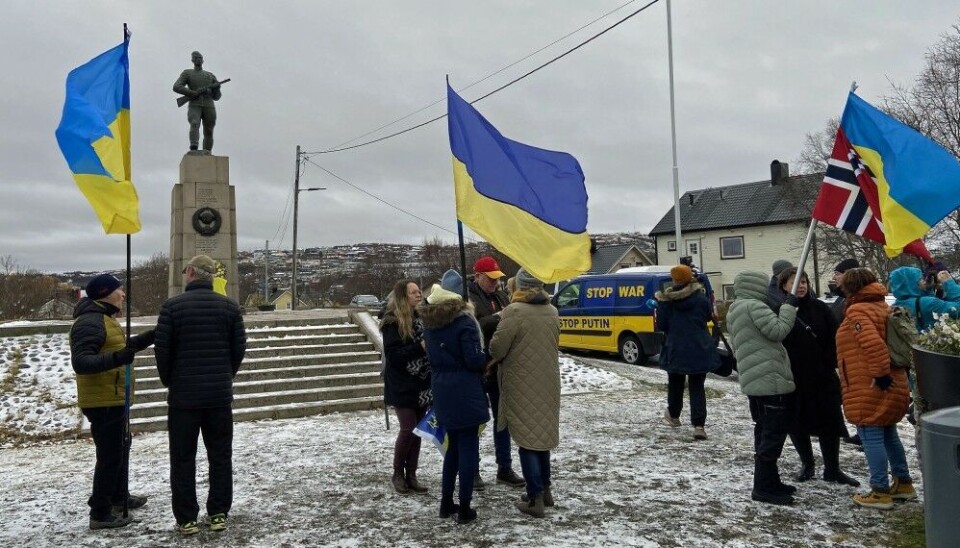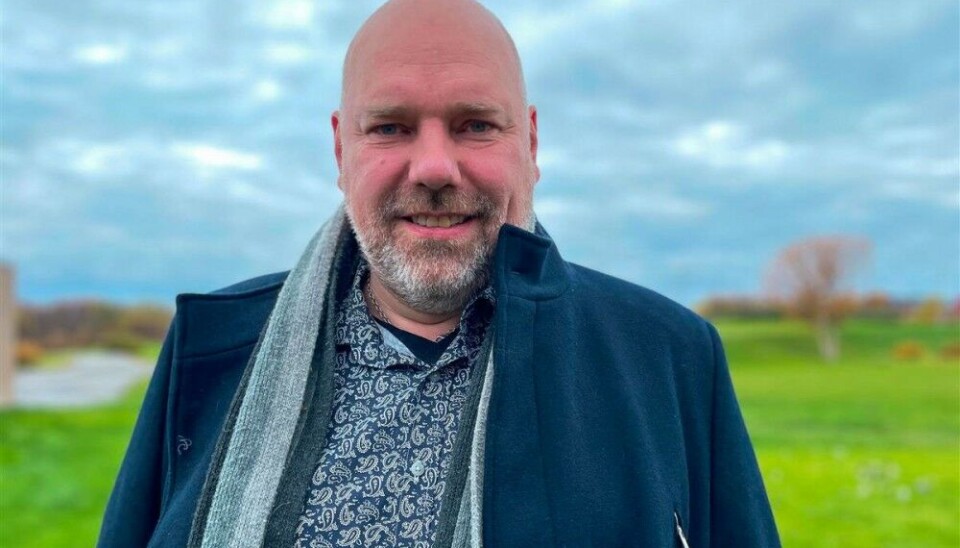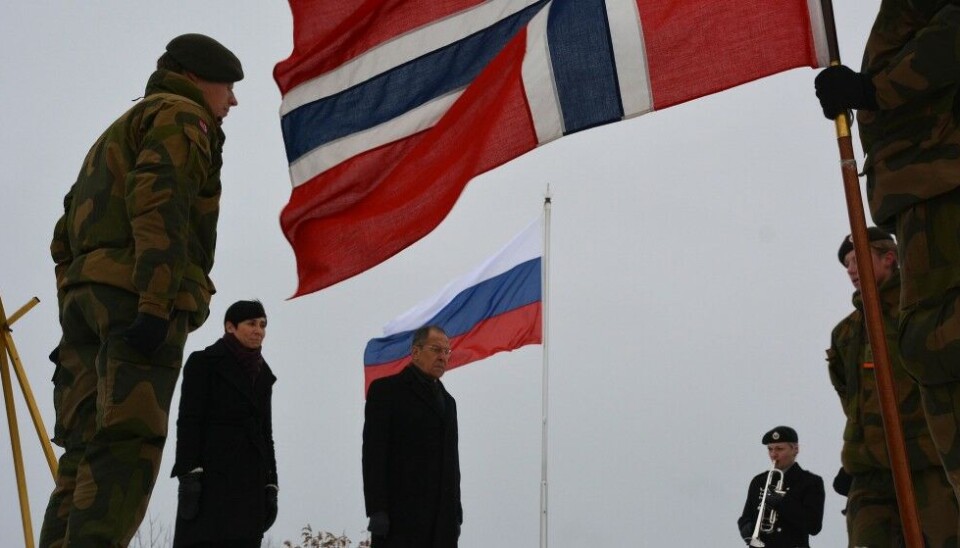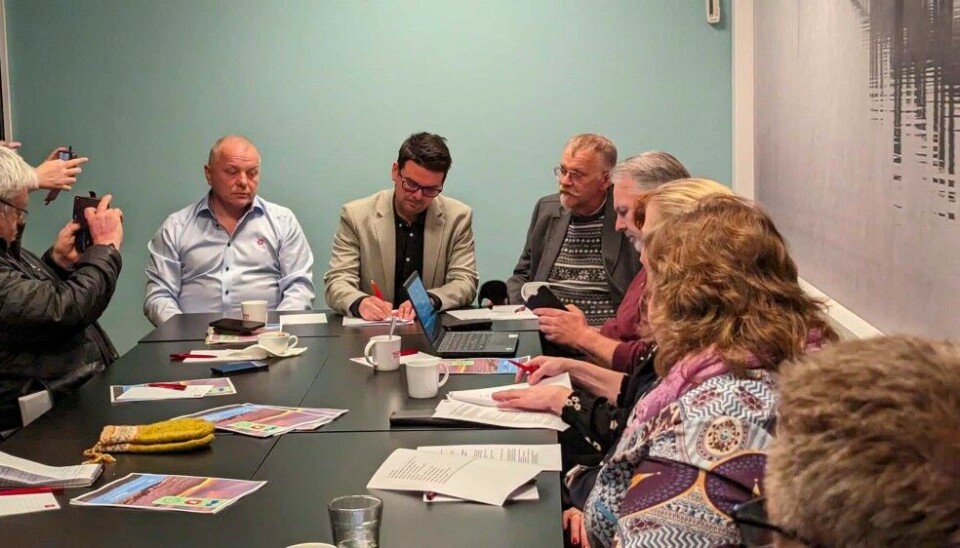
Newly elected leader of Norway's Finnmark region snubs Moscow, wants Volodymyr Zelensky to 2WW anniversary
The new regional government of Hans-Jacob Bønå does not want any official Russian representatives at next year's 80-year anniversary of Soviet liberation of East Finnmark. A similar political shift has come to the border town of Kirkenes, where a new mayor intends to scrap cooperation with neighbouring Russian region of Pechenga.
“Many of us up here have strong bonds to Russia, but we are very disappointed about the way Russia behaves. It seems like all ambitions for democracy and peaceful co-existence have been abandoned and replaced by despotism and war of aggression,” Hans-Jacob Bønå said in his address to the newly elected Finnmark County Council.
Bønå represents the Conservative Party (Høyre) and will lead the northernmost Norwegian region in a coalition of seven parties.

The 53-year old politician takes over the chair in the county council after four years of union with the neighbouring county of Troms. Following a decision by the government of Jonas Gahr Støre, Finnmark from 1st of January 2024 again becomes a separate county.
Defense and preparedness will be a key priority for his new administration, Bønå underlined to his fellow politicians. And he devoted a significant part of his speech to relations with Russia.
More than three decades of ardent efforts to seek rapprochement and cooperation with the neighbouring country have come to an end. Russia is now a serious security threat to Finnmark and Norway, the new regional leader explained.
“Russia has decided to abandon the European community and start a full-scale attack on a neighbouring country. It is unacceptable. And it is dangerous,” Bønå underlined and added that Norwegians still remember how it was to be occupied by another country.
“It has a strong imprint in us even today,” he said with reference to the 2WW Nazi German occupation of Norway.

He praised the locals that over many years have engaged in so-called people-to-people cooperation with Russia, but explained that the times now have changed.
“Russian foreign policy is not decided in Murmansk or [border town] Nikel, but in other places where the interest in peaceful conditions is non-existent and where our possibilities to influence are sparse.”
Finnmark has a long history as borderland between east and west and representatives of both Norway and Russia have repeatedly underlined that they have “never been to war against each other.”
Soviet forces pushed German troops out of East Finnmark in October 1944 and one year later retreated back to the USSR. Although they remained in nearby Petsamo, the area that was previously part of Finland.
Since then, official representatives from both countries have regularly met to commemorate the events of 1944.
But Russian officials will no longer be invited. In connection with the 80-years anniversary, there will be Ukrainians that lay down flowers at the main war memorial in Kirkenes.
“On behalf of the Finnmark County Council, I would like to invite Ukrainian President Volodymyr Zelenskyi to the 80-years anniversary of the liberation of East Finnmark,” Bønå told the council members.
“It will be our way to show gratitude also to the Ukrainian soldiers that shed their blood for the liberation of East Finnmark, their descendants and their motherland, Ukraine,” he said and added that he in the same connection proposes to hold a major international conference in Finnmark with participation of several state leaders and other key people.
The political shift in Finnmark is leading to a revised relationship to Russia also in Kirkenes, the border town located only few kilometres from Russia.

Conservative Party representative Magnus Mæland is new Mayor of Kirkenes and the Sør-Varanger municipality. He has long called for a stronger local reaction to Russia’s war of aggression. In a political platform presented this week, Mæland and his coalition partners underline that the so-called friendship agreement with the neighbouring region of Pechenga will be abandoned.
A new agreement can be concluded only after the end of the war and on the basis of democratic values, the document highlights.
The signals from Hans-Jacob Bønå and Magnus Mæland stand in sharp contrast to their predecessors.
Previous county leaders in Finnmark before 2019 argued that sanctions against Russia should be eased and that the region should not be merged with neighbouring Troms because of its “special relationship with Russia.”
In Sør-Varanger, the previous Labour Government of Lena Bergeng refused to abandon the cooperation agreement with Pechenga despite the Russian region’s heavy involvement in war.
The local Labour Party also long refused to cancel a similar agreement with Severomorsk, the headquarter city of Russia’s Northern Fleet.















